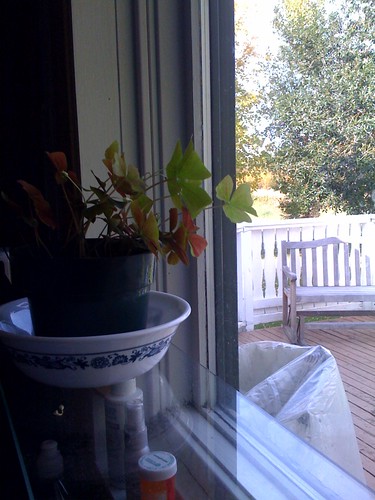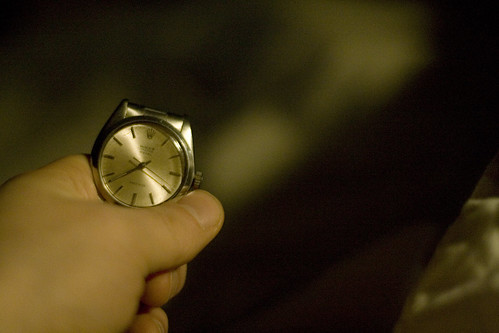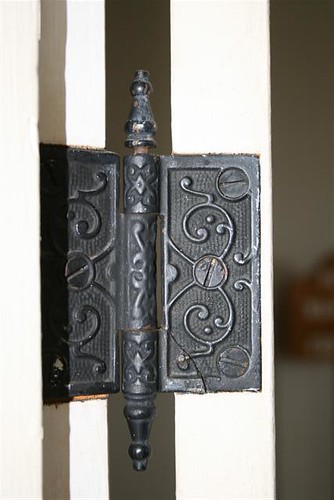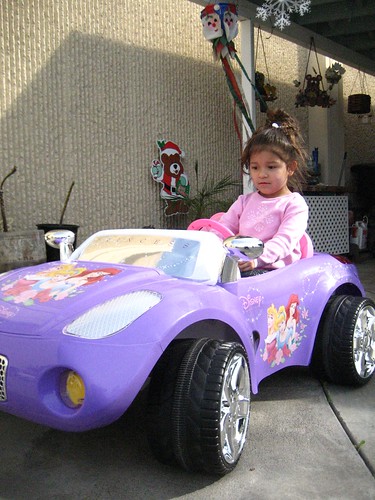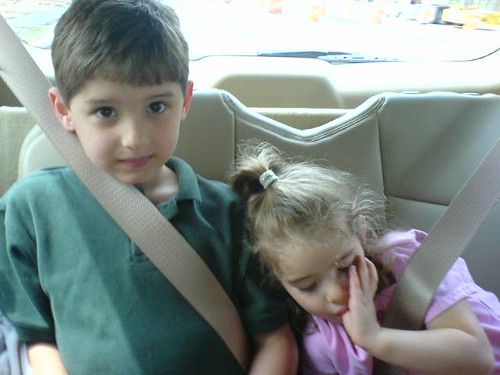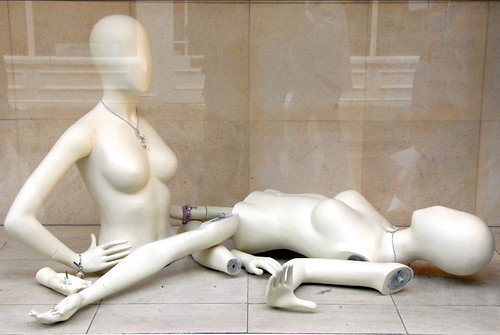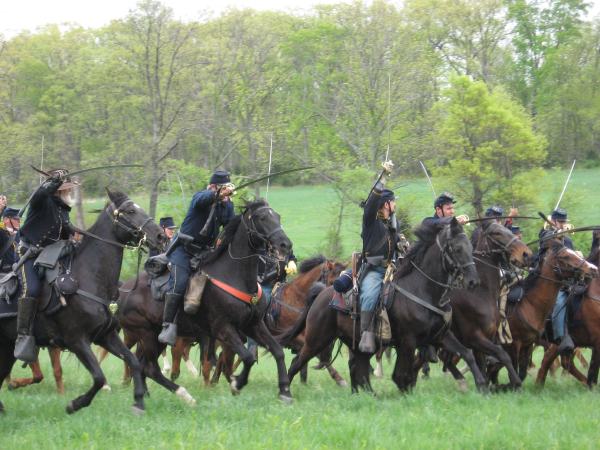
Christmas Day (Readings for Mass at Midnight)
The Cavalry in the Child
Readings: Isaiah 9:1-6; Psalm 96: 1-2, 2-3, 11-12, 13; Titus 2:11-14; Luke 2:1-14
Picture: CC luvsbooks
Sisters and brothers, just before the 8:30 Mass last night, I received an email from a relative, asking for prayers for her father. He’s in the hospital with internal bleeding. And the doctors have yet to discover the source of the bleed. My relative said that she is both worried and scared. She also said that somehow it doesn’t feel like Christmas even though it is. Have you ever had a similar experience: that it doesn’t feel like Christmas even though it is? I suspect that the feeling is more common than we might think. And, with the global economy in its current state, we might expect the experience to be even more common this year.
But what does Christmas really feel like? What situations and emotions do we usually – habitually, and almost unconsciously – associate with Christmas? One of the things that come to my mind, of course, is a childhood memory of desperately waiting for Midnight Mass to be over so that I could rush home to open the presents under the tree. Of course, we will all have our own cherished memories of Christmas, of family and friends, of church and carols. And, for the most part, these will be pleasant memories, warm and cozy memories, memories that fill our hearts with song. But is that really all there is to Christmas? When we listen to our scripture readings today, for example, what kind of experiences, what sort of images do we find?
I don’t know about you, but the image that our readings bring to my mind today is one from the old Westerns. You’re probably familiar with it. The pioneers are happily moving west in their wagons, when they are suddenly attacked by Indians – or, to be more politically correct, Native Americans. Immediately, they circle their wagons and try to hold off the fierce aggressors. But, being both outnumbered and outgunned, they don’t stand a chance. The casualties mount. Resistance seems useless. The end is imminent. Then, just in the nick of time, they hear the welcome sound of a bugle call. The cavalry is here! The attackers are driven off. The pioneers are rescued. There is great relief and much rejoicing all round.
We find a similar situation in our readings don’t we? There is an initial experience of oppression, danger and despair. The first reading tells us of a people who walked in darkness. And this situation is mirrored in the gospel, where Joseph and Mary are among those laboring under foreign occupation. Even though Mary is with child, they have to undertake an arduous journey for the sake of a census. But then something happens. Much more than a bugle call, we find instead a wondrous angelic proclamation, a multitude of the heavenly host… praising God and announcing that a savior has been born for you who is Christ the Lord... The people who walked in darkness have seen a great light… And as a result, there is much relief and great rejoicing. The cavalry is here!
What does this tell us about Christmas, sisters and brothers? What do we learn, if not that the true feeling of Christmas, the great joy that the Christ-child brings, is something that is rescued from the jaws of danger and despair. The joy of Christmas is meant precisely for those who, like my relative, find themselves worried and scared. It is to people such as these that God sends a message of rescue and of hope.
But still, the image of the cavalry’s arrival only gets us so far, doesn’t it? How are we to hear the bugle call when a loved one is desperately ill in hospital and the doctors can’t seem to find the cause? How are we to catch sight of the cavalry when our 401(K) investments are besieged by market forces and there is no rescue in sight? How are we to lift our spirits in joy and excitement when all we feel is the dull weight of anxiety and apprehension?
We have to admit that these are difficult questions, without easy answers. Even so, on this Christmas day, could our readings have something more to say about all this? Indeed they do. But we need to look more closely at the picture that they paint for us. For, although this picture is very similar, in some respects, to the one in the old Westerns, it is also different in very significant ways. And it is to these differences that we need to pay close attention.
First, notice what happens to the shepherds upon receiving the angelic proclamation. Quite unlike the pioneers’ immediate positive response to the bugle call, we are told that the shepherds were struck with great fear, a feeling with which we can all identify. It is a natural reaction to strange and unexpected events, events not unlike a sudden illness, whether physical or financial. Yet, to their credit, although the shepherds are afraid, they do not run away. They remain in conversation with the angel, at the precise location of their fear. And in doing this they find reassurance and guidance. They are told what to do. They are taught how to recognize the cavalry: this will be a sign for you… an infant… lying in a manger… Could this be what we are invited to do too, when we find ourselves feeling fearful at Christmas?
Which brings us to the second significant difference. This is something we know all too well. But often familiarity breeds ignorance. So we need to allow our readings to remind us yet again: the rescue we need so desperately, comes not so much as a deadly cavalry charge but rather in the form of a helpless infant, sharing a bed with animals in a cave, because there was no room for them in the inn. Could it be that to experience the true feeling of Christmas, we need to spend time gazing upon this infant – to see, in this child, not just the valiant charge of the cavalry, but also, especially, the selfless giving on the cross at Calvary?
There is also at least one more difference to consider. In the Westerns, what is highlighted is usually the dramatic and lightning-quick rescue brought about by the cavalry. The pioneers themselves don’t need to do too much. But the situation in our readings is rather different. Notice what we heard in the second reading about the effects of Christ’s coming. The grace of God has appeared, saving all and training us to reject godless ways and worldly desires… to cleanse for himself a people as his own, eager to do what is good. The cavalry rescues the pioneers all but instantaneously. But the child in the manger saves us by putting us through rigorous training. Could this training be what we need to experience the true joy of Christmas?
Of course, all this requires time. The move from fear to joy requires time. The recognition of the cavalry in the child requires time. The training that molds a people eager to do what is good requires time. Are we not fortunate, then, that Christmas doesn’t end with Christmas day, but continues throughout the Christmas season, until we celebrate the Baptism of the Lord on January 11? Won’t we need all this time to learn to experience the true feeling of Christmas?
Sisters and brothers, the bugle has indeed sounded! The cavalry is here! How are we being invited to deepen our Christmas joy today?
A blessed Christmas to one and all!



